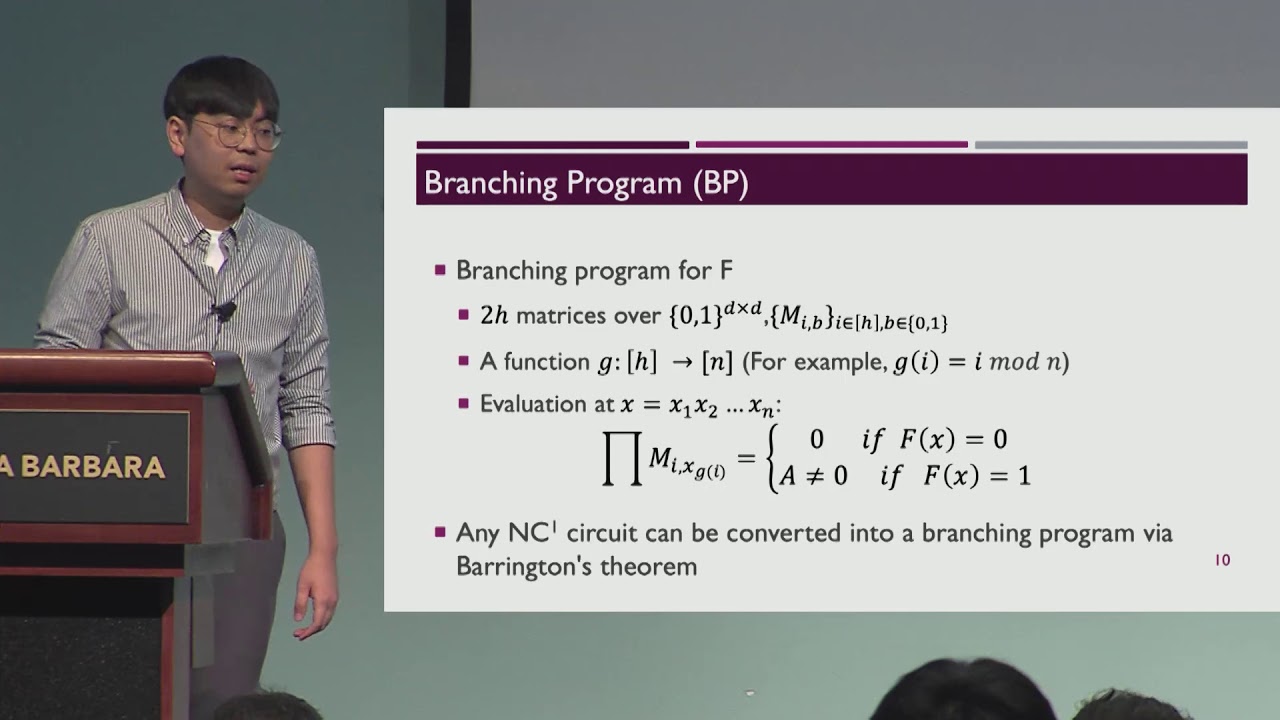Welcome to the resource topic for 2018/1081
Title:
Statistical Zeroizing Attack: Cryptanalysis of Candidates of BP Obfuscation over GGH15 Multilinear Map
Authors: Jung Hee Cheon, Wonhee Cho, Minki Hhan, Jiseung Kim, Changmin Lee
Abstract:We present a new cryptanalytic algorithm on obfuscations based on GGH15 multilinear map. Our algorithm, statistical zeroizing attack, directly distinguishes two distributions from obfuscation while it follows the zeroizing attack paradigm, that is, it uses evaluations of zeros of obfuscated programs. Our attack breaks the recent indistinguishability obfuscation candidate suggested by Chen et al. (CRYPTO’18) for the optimal parameter settings. More precisely, we show that there are two functionally equivalent branching programs whose CVW obfuscations can be efficiently distinguished by computing the sample variance of evaluations. This statistical attack gives a new perspective on the security of the indistinguishability obfuscations: we should consider the shape of the distributions of evaluation of obfuscation to ensure security. In other words, while most of the previous (weak) security proofs have been studied with respect to algebraic attack model or ideal model, our attack shows that this algebraic security is not enough to achieve indistinguishability obfuscation. In particular, we show that the obfuscation scheme suggested by Bartusek et al. (TCC’18) does not {achieve} the desired security in a certain parameter regime, in which their algebraic security proof still holds. The correctness of statistical zeroizing attacks holds under a mild assumption on the preimage sampling algorithm with a lattice trapdoor. We experimentally verify this assumption for implemented obfuscation by Halevi et al. (ACM CCS’17).
ePrint: https://eprint.iacr.org/2018/1081
Talk: https://www.youtube.com/watch?v=Ft2myAzDZbU
See all topics related to this paper.
Feel free to post resources that are related to this paper below.
Example resources include: implementations, explanation materials, talks, slides, links to previous discussions on other websites.
For more information, see the rules for Resource Topics .
